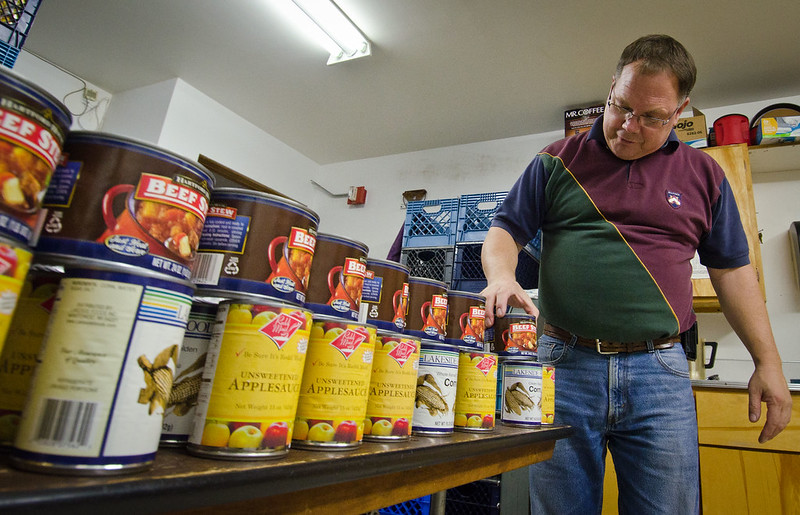
Rural areas hit hard by food insecurity, study finds
Listen
(Runtime 1:03)
Read
Before she began looking into food insecurity in rural areas, Sarah Whitley knew what it was like to go to school hungry.
Now, she’s studying the issue at Washington State University.
Food insecurity in rural areas is getting worse, according to a recent study from the USDA. Last year, 18 million households didn’t have good access to food.
While a lack of food in rural areas might be opposite of what you’d picture in farmland, studies show it’s increasing at a rapid pace, said Whitley, a sociology professor at WSU.
“The takeaway here is food insecurity in rural America is a significant social problem,” Whitley said.
In a recent sociology study in eastern Washington, Whitley talked to rural residents about food insecurity. Poverty levels were twice the national average.
She found a lack of food happened for many reasons: food costs more, grocery stores could be really far away and food pantries might not be open after typical work hours.
“Rural areas face a perfect storm of challenges and issues that contributes to their levels of food insecurity,” she said during a virtual talk hosted by WSU.
It’s also harder for people to stay anonymous in rural areas, which can be stressful or shameful.
Most often, people Whitley surveyed wouldn’t use government assistance, from disability benefits to the federal supplemental nutrition program for women, infants and children, known as WIC. They often opted to go hungry or to only feed their children. People felt judged or ashamed when their neighbors knew they needed food.
“They were using strategies that fit with the rural ideal. The rural ideal encompasses individuals working hard, self-reliance and taking care of oneself and one’s family,” Whitley said.
In her study, people said they were taught to live with what they had and be a productive member of the community.
When people were able to get food from pantries, people Whitley talked to said they don’t always get what they needed. It was harder to find fresh vegetables or enough food, with one man saying he could only pick up a couple grocery bags at his local pantry.
That’s part of what causes the hunger-obesity paradox, Whitley said.
“In the United States, hunger and obesity go hand in hand,” she said.
Food insecurity in rural areas is a complex problem that needs targeted strategies and resources, she said.
“My hope is that my research can influence policy concerning this important social problem,” Whitley said.
In addition to Whitley’s talk, WSU will host a talk with Priya Fielding-Singh on her book “How the Other Half Eats” at 7 p.m. Tuesday in the CUB Senior Ballroom on WSU’s Pullman campus. The talk will also be livestreamed.















